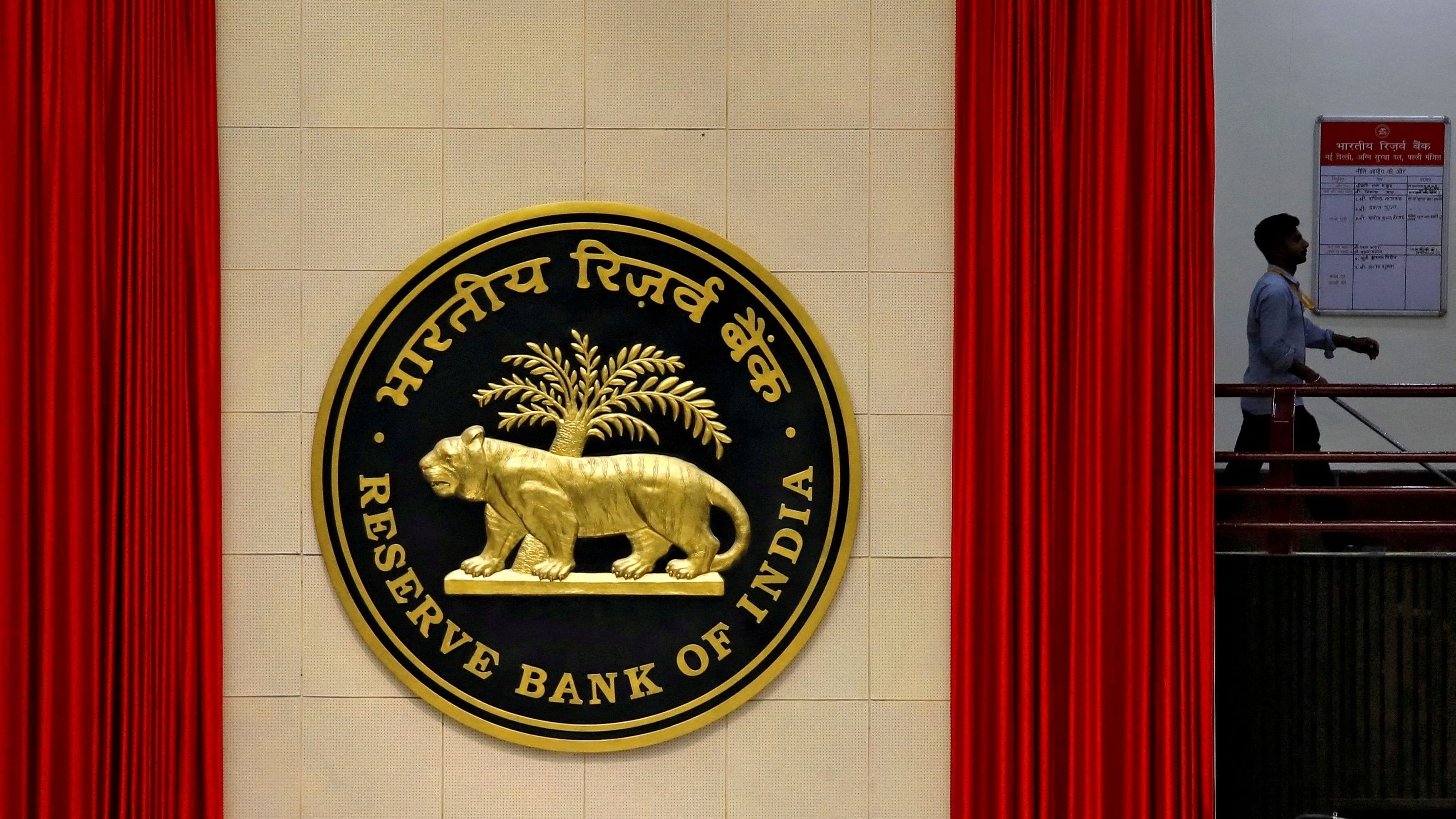
Logo of Reserve Bank of India (RBI)
Credit: Reuters Photo
New Delhi: Despite tight monetary policy and keeping interest rates at elevated levels for around a year, the Reserve Bank of India (RBI) is not assured of bringing down inflation to its medium-term target of 4% on a durable basis.
In its monthly bulletin released on Wednesday, the RBI said that headline retail inflation is expected to remain at 5.4% in the current financial year and may ease to 4.6% in the first three quarters of 2024-25. This indicates that the RBI is unlikely to achieve its target of 4% inflation for the next one year.
“The objective of aligning inflation with the target on a durable basis is far from assured,” the RBI noted in ‘State of the Economy’ article.
The central bank further noted that inflation is adversely impacting discretionary consumer spending, which in turn impedes the overall economic growth. “If inflation is not brought back to the target and tethered there, there is a strong likelihood that growth may falter,” the RBI said.
Data and voices from sectors as diverse as automobiles, electronic items, fast-moving consumer goods and real estate indeed show that well into the festive season, the rise in prices did impact the buying choices of consumers.
Consumer Price Index (CPI) based retail inflation rose to 5.55% in November after averaging 4.9% in the previous two months. The higher inflation was led by a sharp jump in food prices, especially vegetables and pulses, as per the latest official data.
CPI inflation, which the RBI monitors for its monetary policy action, has been above the central bank’s medium-term target of 4% for 50 consecutive months.
According to the RBI, inflation is likely to remain elevated in December also. “The recurrence of food price spikes in November has punctured a brief respite in September and October. It is expected that these pressures will linger on into December before the usual winter softening sets in and dispels these adversities,” it said.
Underlining the volatility in food prices, the RBI noted, “the repetitive nature of food imbalances impinging on prices reinforces our view that for India, it is the food category that is the true ‘core’ of inflation, with second order effects that delay the policy goal of aligning headline inflation with the target.”
On the recent record-breaking rally in stock markets, the RBI noted that the equity markets are posting relief rallies and futures markets are pricing in a near 100% probability of rate cuts as early as May 2024.
“The sense is that the European Central Bank (ECB) will lead the rate cutting cycle as stagnation and recessionary forces broaden across the euro area, and the US Fed and the Bank of England will follow,” it said.